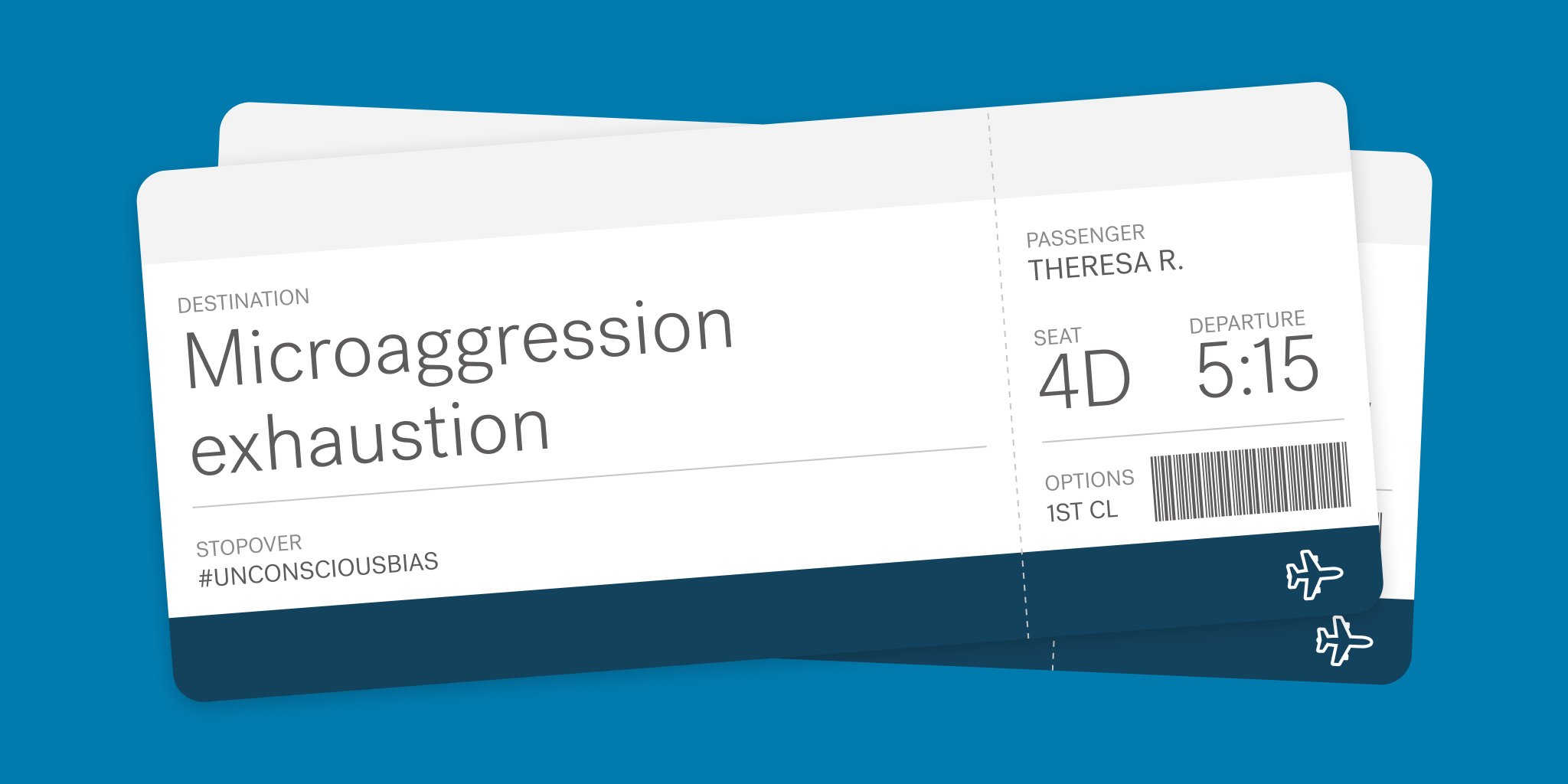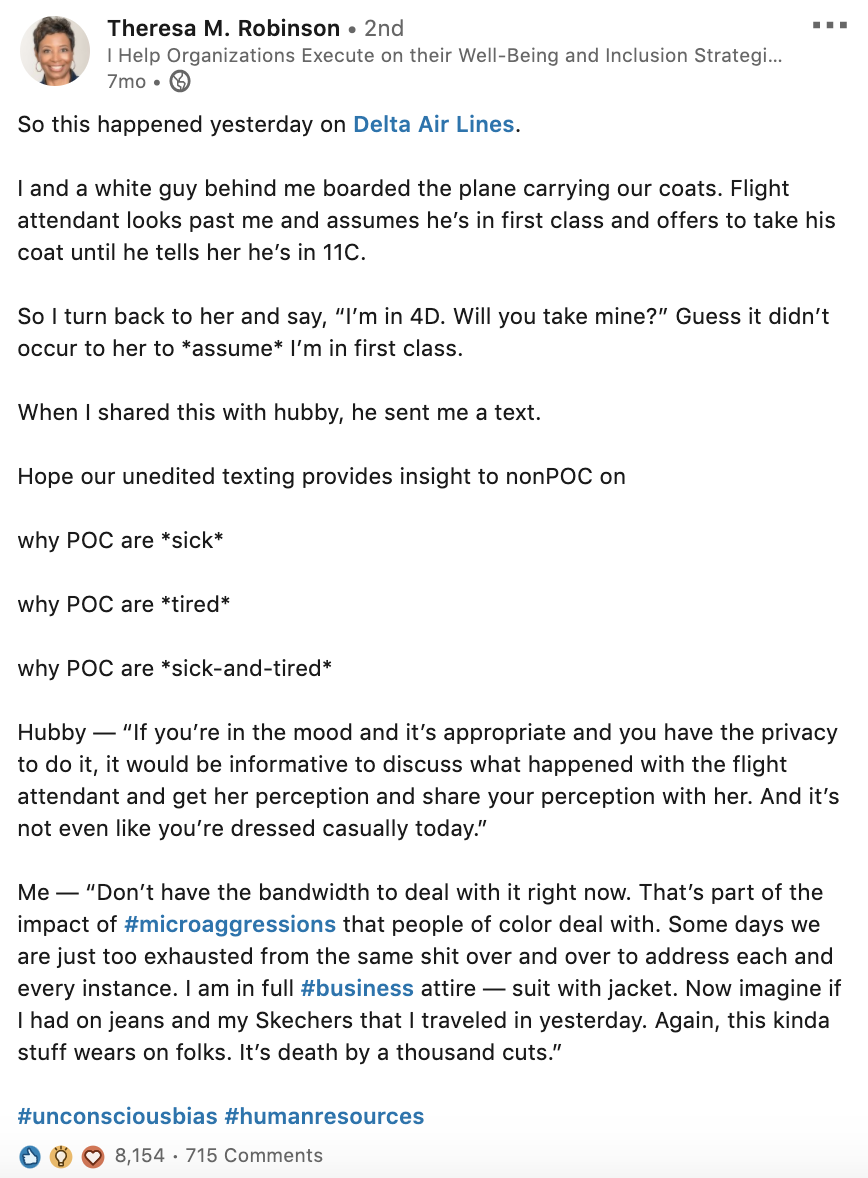Calling out microaggressions: one leader’s experience sharing her “Blaxhaustion™”

Theresa M. Robinson is a “well-being and inclusion catalyst”—a facilitator, keynote speaker, coach, author, and president of a global soft-skills training consulting firm. She is an anti-racism educator and DEI thought leader.
Late last year, Robinson posted on LinkedIn about an instance of microaggression she experienced on a Delta Air Lines flight. While boarding, Robinson was overlooked by a flight attendant offering to take the coats of first-class passengers. The attendant looked past Robinson, who is Black, to address a white man in line, assuming he was seated in first class—and apparently assuming Robinson was not.

As she wrote in a follow-up post on her blog, Robinson shared this experience “in a good faith effort to provide insight and awareness on the cumulative impact of *microaggressions* on people of color.” Robinson’s blog provided even more insight into the experience of microaggressions—particularly the potential fallout of calling them out.
Robinson shared that though she received a lot of support for her LinkedIn post, she was also variously accused, publicly, of “being racist and sexist, of playing the race card, having a victim mentality, being full of hate, having a chip on [her] shoulder, etc.” After (voluntarily!) doing the work to educate non-POCs on the experience and impact of microaggressions, she was sometimes thanked, but also sometimes attacked or dismissed.
The goal [of 'disruptive inclusion'] is not to invite more people to the existing table; rather it’s to include people in building a new table.
And it’s in these attacks and dismissals that another big lesson in Robinson’s story lies, and which she highlights in her blog. She writes that in addition to the public comments, she received many private messages from folks saying that they do not feel comfortable speaking up about microaggressions at work “for fear of retaliatory attack or repercussion to their careers.” Robinson notes that some of the reactions her post received demonstrate why workers may have this fear, and she calls on employers to evaluate the safety, trust, and empathy (or lack thereof) within their company cultures. She writes, “I hope it spurs you into action to re-evaluate the inclusive culture you’re so passionate about building … If folks don’t feel safe in just the sharing of their experiences, what might that say about the organization?”
Robinson describes herself as a “disruptive inclusionist” and expanded on this via email: “Being a ‘disruptive inclusionist’ means shaking up the foundation of ‘traditional’ systems in order to lay the groundwork for new practices, new policies, new processes, and new people. The approach is transformative in its focus on building anew versus putting band-aids on what’s broken. The goal is not to invite more people to the existing table; rather it’s to include people in building a new table.”
For those looking to make real cultural change in their organizations, Robinson recommends this Forbes article that features her and six other anti-racism educators. For more on disruptive inclusion and Robinson’s work and services, check out her website.